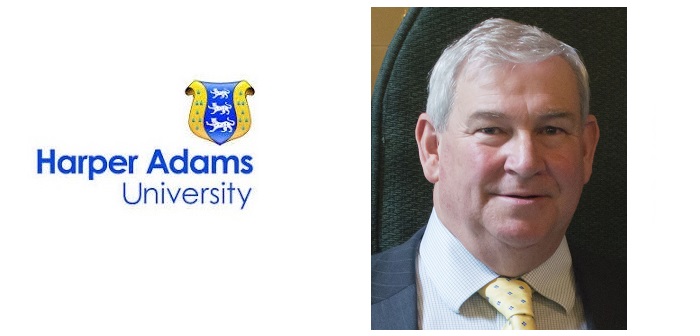The global poultry industry has been challenged to “be prepared to be involved” in helping to maintain access to useable water around the world in the face of significant demand increases in the years ahead.
“The pressures of population increases and changing societal demands, coupled with the uncertainties of climate change, present real challenges for the use, management and development of the global water resource between now and 2050,” said the president-elect of the Chartered Institution of Water and Environmental Management (CIWEM), Bruce Keith, when he delivered the 25th Temperton Fellowship for Poultry Research presentation in London earlier this month.
“Whilst these challenges will impact on the poultry industry, I am equally confident that the industry has much to offer by way of innovative working and community education, promoting the benefits afforded by poultry products to ensure that poultry has more to offer as part of the solution to the problem rather than as part of the problem.”
Commenting that water consumption is increasing quicker than the global population and that only 2.5% of the world’s water resource is freshwater, and most of that is inaccessible, Mr Keith (pictured above) reminded his audience that agricultural production currently uses approximately 70% of the useable water resource.
In addition, in focusing on current demands being generated by the poultry industry, he urged sector leaders to “be prepared to be involved”.
He also issued a challenge for future water concerns to be approached from a positive perspective, concentrating his presentation more on solutions than problems.
“I truly believe that necessity is the mother of invention,” he said, adding that his recommendations regarding how to maintain a sufficient supply of water included protecting the water we already have; reducing or minimising wastage and seeking to make more useable water available.
“Desalination is one possibility of how we can have more water available. The process now costs less and uses less energy due to technological advances.
“Other possible solutions include recycling water from toilet-to-tap, using the right ‘type’ of water for each job, tailor-made livestock for different countries and saltwater-tolerant crops.”
Mr Keith then advanced several “poultry-specific” suggestions for improved water management.
“The structure of the broiler and egg industries is based on large commercial conglomerates,” he said, noting that there are three large broiler companies globally.
“Taken together with the tiered organisational arrangements, this (commercial) structure makes the promotion of sound stewardship in water resource use by the poultry industry a very achievable, and indeed sustainable, objective.
“The poultry industry in the UK already has the Lion and Red Tractor Farm Assurance Poultry Scheme accreditations, so could there be a similar branding for water stewardship?
“It is the responsibility of everyone involved in the poultry industry, from those who grow the crops which feed the chickens through to those who sell the produce and the consumers who eat the poultry meat, eggs and food products, to rise to the challenge of ensuring the water required to feed the world is used wisely and the scarce resource is not wasted.”
The Temperton Fellowship was established to commemorate the contribution of Dr Harold Temperton, Director of the National Institute of Poultry Husbandry at Harper Adams University from 1951 -1974.
A full copy of Mr Keith’s Temperton Fellowship report is available on request from Harper Adams University.


